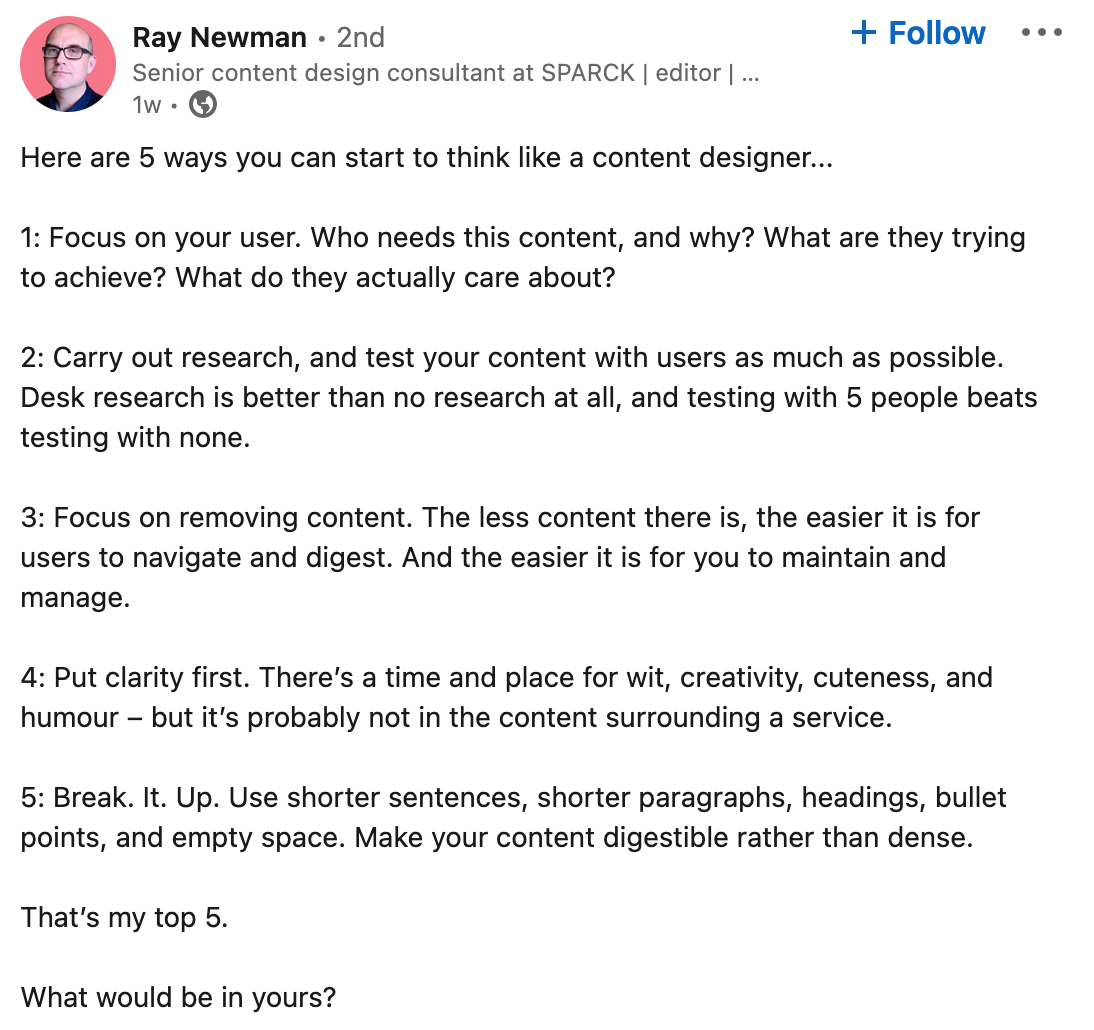The first time I really, tangibly felt the impact of working with a genuine content expert was during the development of our e-commerce product, Viadukt.
On that project we were working with the brilliant Lauren Pope.
Through the work that Lauren was doing we were getting a perspective on the work that we wouldn’t usually have had, and asking valuable questions that we wouldn’t normally have asked.
So impressed were we with the value that this perspective added to things that not long after we started working with Lauren we created our first, permanent in-house content strategy role at Substrakt. That role is held by the exceptionally talented Zosia Poulter.
I read a couple of things recently that made me reflect again on the value of content experts.
This piece from Lee Baker describes a content designer’s own doubt about how valuable they are.
“We were learning about opportunities to add more value, as well as the problems with news content. […] I could see that stakeholders’ need for ‘news’ to help people connect with us was not always being met. Sometimes content is used in ways we never intended. Many lower value visits were quick checks of medical news by people self-diagnosing! At its best, ‘news’ is not a cul de sac, but a door.”
And this short post from Ray Newman gives some ‘tips to think like a content designer’ (all of which would have an immediate, positive impact on your content).

In these two relatively short reads I was struck by the two levels at which content professionals can add value.
Firstly on the strategic thinking around a product or service, by asking deep and challenging questions about ‘why’.
And also on an extremely practial, tangible level - directly influencing the ‘what’ and ‘how’.
Why is content thinking so valuable?
Most of our time spent on the internet is spent looking for or engaging with content. It’s why we always say that the difference between a good and great digital experience is usually because of the content. But despite this, content design and content thinking is a still a relatively new discipline, and because of this many people still haven’t truly experienced or understood the impactful nature of high-quality content thinking.
Content designers and strategists ask deep questions about purpose and intent. Moreso than any other discipline I have been struck by how content experts ask great, difficult questions about intent.
Content folks are inherently user-focused. The starting point for content professionals is understand the language, context, expectations etc of the user. This means that they bring an inherent level of user-focus to conversations.
Content cuts across every aspect of an experience. There is no part of a digital experience that doesn’t involve content in some way. This means that content folks are always thinking about the interconnected nature of an experience, and are great at thinking about how coherent (or not) the bigger picture is. Working with content folks for the first time feels like discovering connective tissue you didn’t know you were missing.
Structured content thinking gives your product or service really robust foundations. Working with Lauren’s content models on Viadukt was really impressive, it gave the whole project a level of structure that we hadn’t realised we’d been missing.
Tl;dr: Content experts are experts
I suppose what I’m trying to say is, it’s perhaps easy to dismiss content roles, or to imagine that the expertise already exists on your team because “anyone can write” - so that it is thought of as a task rather than a discipline.
But it is real, deep expertise, with its own ways of thinking, methodologies, tools, processes, and deliverables (that are much more than just ‘some content’), and, really, not everyone is a content expert.
So bringing that actual expertise onto your team will have instant, obvious, and less obvious benefits.
And typically, because of the nature of content, those benefits are additive - great content thinking tends to have a halo effect on every aspect of a project.
I’d really recommend it.
